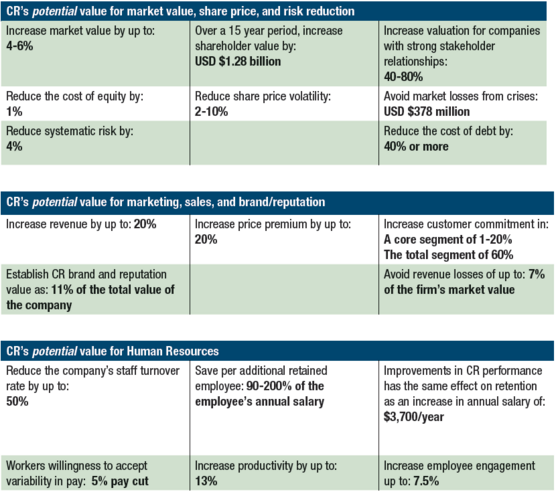The notion that businesses should care about sustainability and already should have it embedded into their business model is now basically the norm. In 2016, companies who don’t have a well-articulated and specific sustainability plan are perceived as out-of-touch.
Some companies may already have sustainability goals, but perhaps those goals aren’t as ambitious as their competitors, or maybe the company hasn’t made a significant effort to develop realistic plans to actually meet those goals. In the words of Steve Rochlin of IO Sustainability, who presented on this topic at SustPack in Chicago, some companies “overpromise and underdeliver.”
Tensions around the value and progress of sustainability can also be observed within companies. Some professionals still encounter resistance and skepticism from other departments or executive leadership regarding the value of sustainability, and need ways to influence colleagues in order to overcome that hostility or doubt. Other professionals may already have internal buy-in for sustainability, but as a new aspect of their business that carries uncertainty, are struggling to implement it in a meaningful way.
To that end, Babson College’s Lewis Institute for Social Innovation and IO Sustainability released a comprehensive report about return on investment (ROI) for corporate sustainability, called Project ROI. What’s great about the report is that it gives sustainability professionals real data and real advice about how to articulate a case for sustainability at their companies based on the concept of ROI. The report identifies the following areas where corporate responsibility (CR) can provide potential value:

You’ll see the data is staggering and persuasive: sustainability can provide potential value for market value, share price, risk reduction, marketing, sales, brand reputation, and even human resources. The report gives specific information about how and why that increase in value is possible.
Rochlin says that in order to create value for sustainability at a company, that company should pick two to three areas where they really want to make true change – the idea is not to spread one’s self too thin. In the words of Niki King, Senior Manager for CSR at Campbell’s, who presented on the same panel at the conference, “you have to do some soul searching, to determine who you will be as a company.”
Project ROI provides a very helpful framework for making those core strategic initiatives a success. First, identify fit. This gets back to the concept of doing “soul searching” in order to identify core strategic initiatives that make sense for your particular business, not spreading ambitions too thinly, and being able to articulate the rationale as to why. Second, commit – ”go big or go home” in this specific area. Has the CEO, with approval of the board, committed to being a leader in this area? For example, the CEO of Lockheed Martin, Marilyn A. Hewson, was able to demonstrate to shareholders that it was a risk for the future to not embed sustainability into the company, and that it’s intimately tied to research & development and innovation in a company.
Third, manage that initiative like you manage all other aspects of the company: measure, monitor, and report. And finally, connect: involve and engage stakeholders. Those stakeholders may include employees of your company or shareholders and consumers. Listen to what they say and adjust your strategies accordingly.
King echoed the importance of stakeholder engagement; she conducted over a hundred internal and external interviews at Campbell’s. Asking what was most important to them gave her essential information about operations and perspectives so she could know how to get specific with sustainability implementation strategy. And she said that having data, like the fact that sustainability can grow business by 20%, is immensely helpful when you are trying to get internal buy-in from sales and marketing professionals.
Categories
The Art of Influence: Using the Concept of Return On Investment to Develop an Effective and Meaningful Corporate Sustainability Strategy


